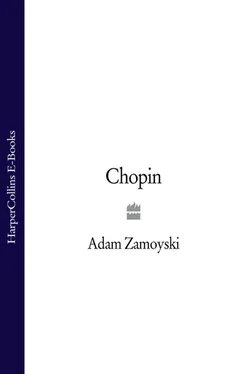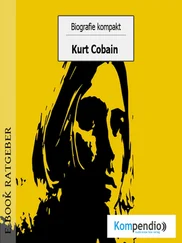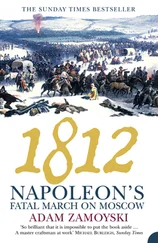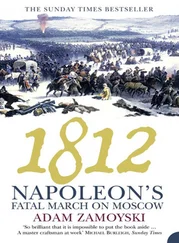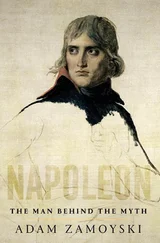Nicolas Chopin was a product of the eighteenth century, and to him the profession of musician was hardly more respectable than that of actor. Having risen in the world himself, he was determined that his son should continue the ascent. Even when obliged to acknowledge his son’s exceptional gift, he would not allow him to exploit it in what he considered a socially demeaning way.
Chopin was shown off whenever this might improve his prospects. In 1818 the mother of Tsar Alexander and Grand Duke Constantine, the Empress Maria Feodorovna, visited Warsaw and indulged in the usual round of visiting institutions and schools. When she graced his class at the Lycée, the eight-year-old Chopin presented her with two Polonaises. At the end of 1819, when the famous singer Angelica Catalani came to give some concerts in Warsaw, the boy was again exhibited; she was so impressed that she presented him with an inscribed gold watch. He was also a regular performer at the Benevolent Society’s concerts, and often played at soirées in aristocratic houses. Charity events were permissible, as he performed alongside aristocratic amateur musicians or children reciting poetry, but there was no question of the boy playing for money or taking part in commercial concerts, for that would have branded him as a professional musician.
How Chopin saw himself by the time he had reached the age of eight is impossible to tell, but one thing is certain: that he already knew music to be his most personal form of expression. Every year on his name day in December, Nicolas Chopin was presented with little hand-painted greetings from his son. The verse offering for 1818 opens with the words: ‘Dearly beloved father; it would be easier for me to express my feelings in musical phrases…’ 14
He had by now learned to write down music, as can be seen from the beautifully written-out Polonaise he dedicated and presented to Żywny on the latter’s birthday in 1821, one of the few surviving compositions of this period. The majority of the pieces he wrote at this time remained in manuscript form among his own papers, with which they were later destroyed by Russian troops, or were written into albums, most of which suffered similar fates. Judging from the one or two pieces which have survived, they were clever but hardly distinguished.
At about the same time it became clear that Żywny’s task was over, and that there was no more he could do for Chopin. He remained a close friend of the family and often brought his violin to play duets with his pupil, but stopped giving him lessons.
While Żywny was not replaced by another teacher, and Chopin essentially worked at the piano on his own, he was not left entirely without guidance. The piano and organ teacher at the Conservatoire, the Bohemian-born Wilhelm Vaclav Würfel, who had worked in Vienna where he won the admiration of Beethoven, was a friend of the Chopin household, and he guided the boy on a friendly basis.
Another who contributed to Chopin’s musical education was Józef Elsner, a Silesian who had established himself in Warsaw some thirty years before. He was a prolific composer of operas, masses, oratorios, symphonies and chamber music, whose recently revived works reveal him as an interesting and original musician. He was also an excellent teacher, and had been appointed head of the newly founded Warsaw Conservatoire.
He was interested in drawing Chopin into this institution, so he gave him a few lessons in musical theory and presented him with a book on the rules of harmony. But for the time being Nicolas Chopin’s views on the boy’s future prevailed, and he would have no formal musical instruction over the next four years.
The review of a charity concert in which Chopin had taken part in February 1823 concluded with the following observation:
The latest number of the Leipzig musical gazette reports, in an article from Vienna, that an equally young amateur by the name of List [sic] astonished everyone there by the precision, the self-assurance, and the strength of tone with which he executed a concerto by Hummel. After this musical evening, we shall certainly not envy Vienna their Mr List, as our capital possesses one equal to him, and perhaps even superior, in the shape of young Mr Chopin… 1
Chopin himself would not have envied the Viennese prodigy. For while Franz Liszt, one year his junior, was steered into the gruelling career of performing musician, Chopin enjoyed a normal childhood. Later that year he donned the semi-military uniform of blue frock-coat with a single row of buttons and a high collar with a white stripe on it, and joined the fourth form of the Warsaw Lycée like any other schoolboy.
While he was by no means robust, he was neither sickly nor timid, and was among the most popular members of his class. Unaffected and unselfconscious as he was, ‘little Frycek’ had no difficulty in making friends. He won the avuncular and slightly protective friendship of older boys, such as Jan Białobłocki and Tytus Woyciechowski, respectively five and two years his senior. But he was also at the heart of a gang of the livelier members of his own class, such as Dominik Dziewanowski, Julian Fontana and Jan Matuszyński.
Chopin had an irreverent wit and a keen eye for the ridiculous. He drew incisive caricatures and satirised Poles speaking French or foreigners speaking Polish. He fooled about on the piano, making musical jokes or providing an accompaniment to stories. But it was his gift for mimicry that really astonished people. He could transform not only his expression, but his very appearance, and was barely recognisable when imitating one of the Lycée masters or some public figure. Many years later, the celebrated French actor Pierre Bocage was to say that Chopin had wasted his talents by becoming a musician.
But while he neglected no opportunity for fun, Chopin also worked hard, and at the end of the academic year in July 1824 he collected the fourth-form prize jointly with Jan Matuszyński. The real prize, however, was an invitation to go and stay in the country with his classmate Dominik Dziewanowski.
Apart from the occasional short visit the Chopin family had made to the Skarbeks at Żelazowa Wola, this was Chopin’s first real taste of the country. The Dziewanowski estate, Szafarnia, lay not far from Żelazowa Wola, on the flat Mazovian plain, west and slightly north of Warsaw, the only part of the Polish countryside with which Chopin was ever to become familiar. The estates in that area were not rich, and the country houses reflected this. The house at Szafarnia has not survived, but it probably conformed to the general pattern of timber or rendered brick manor houses: long and low, classical in style, with a colonnaded portico. These houses were often elegant, occasionally even grandiose in their conception, but the execution was sometimes rustic. The same went for life inside them, with the accent on comfort: there would be a piano in a fine drawing room, but there might be geese wandering about the back porch.
Chopin’s holiday in Szafarnia had undoubtedly been dictated, at least in part, by concern for his health, which was far from good; it is possible that he had contracted tuberculosis, which was widespread. He was armed with pills and put on a strict diet: six or seven cups of acorn coffee per day, various tisanes, plenty of food, a little sweet wine, very ripe fruit, but, much to his chagrin, no bread.
This did not mar his enjoyment, and his letters home are full of the excitement caused by the novelty of his experiences. The books he had brought from Warsaw were hardly opened, and although he played the piano a great deal, he wrote little during his stay. Most of his time was spent out of doors, running about with his friend Dominik, going for drives through the surrounding countryside, visiting their friend Jan Białobłocki, whose parents’ estate lay not far away, and even riding. ‘Don’t ask whether I ride well or not,’ he wrote to a friend in Warsaw, ‘but I do ride; that is to say the horse goes slowly where it wants, and I sit on it in terror, like an ape on the back of a bear; I haven’t fallen off yet, because the horse hasn’t bothered to throw me.’ 2This was hardly surprising, since it was being led about on a rein by Dominik’s aunt Miss Ludwika Dziewanowska.
Читать дальше
